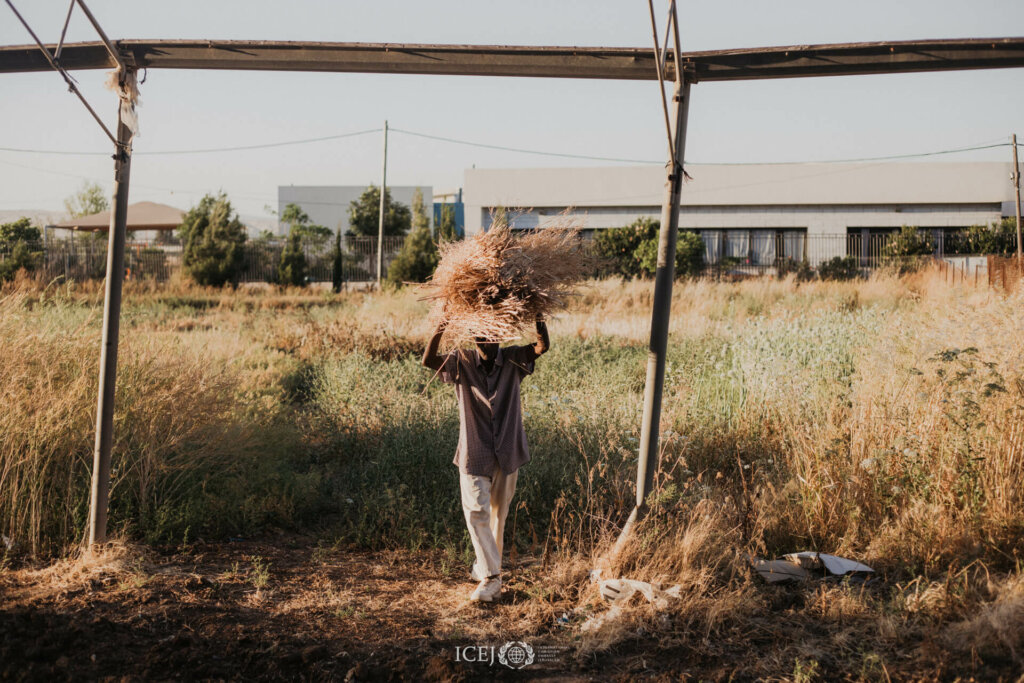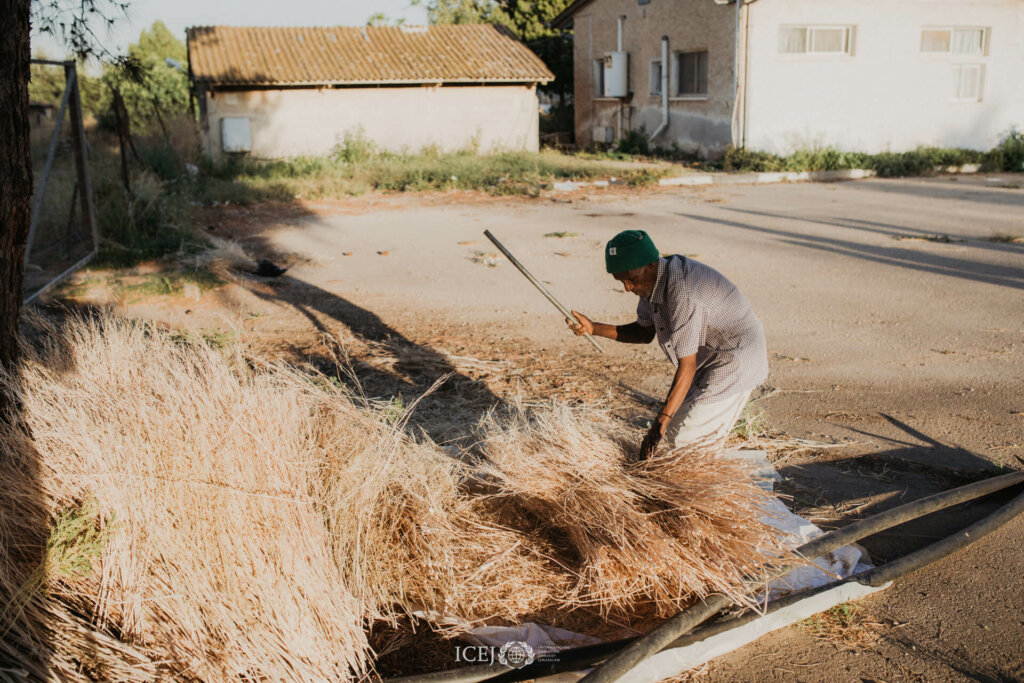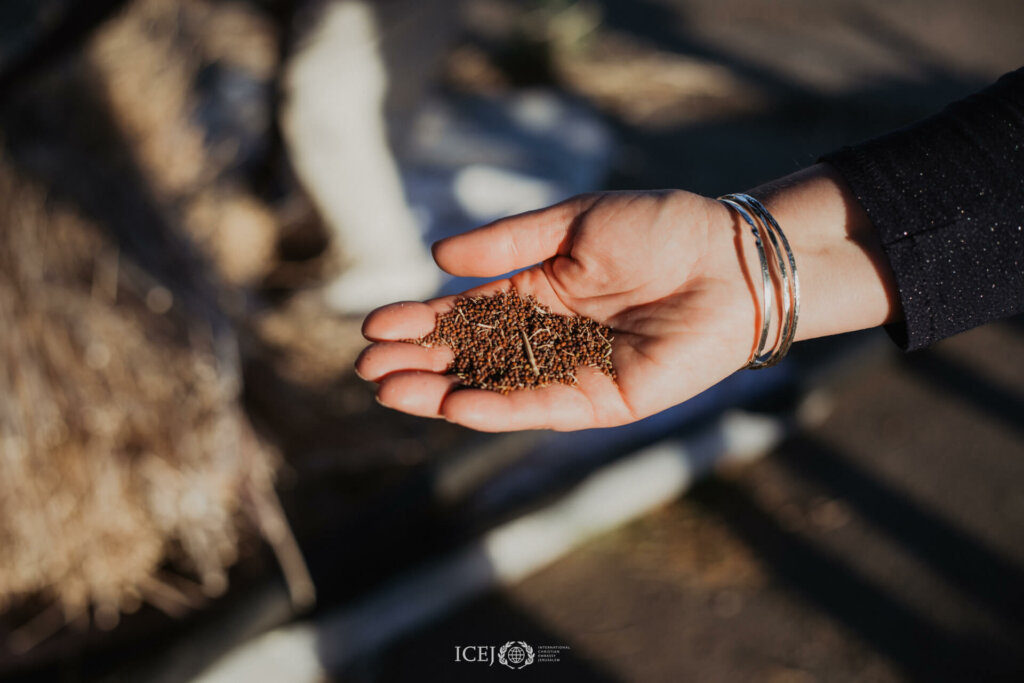
Aliyah village offers Ethiopian immigrants soft landing in Israel
Published on: 30.5.2023By: Annaliese Johnson
Earlier this month, an ICEJ team visited the Beit Alfa immigrant village in northern Israel to meet one of the Jewish families we recently sponsored on an Aliyah flight and hear from them how they were settling into their new home.
Opened in 2007, Beit Alfa offers the first homes in Israel for many new immigrants (olim) from the Ethiopian Jewish community. The absorption center features 141 ground-level homes, animals grazing, surrounding agricultural fields, and smiling children racing around and playing soccer, all under the shadow of the Gilboa mountain range. This rural setting, so reminiscent of the place they recently left behind, is certainly a ‘soft-landing’ for these families.
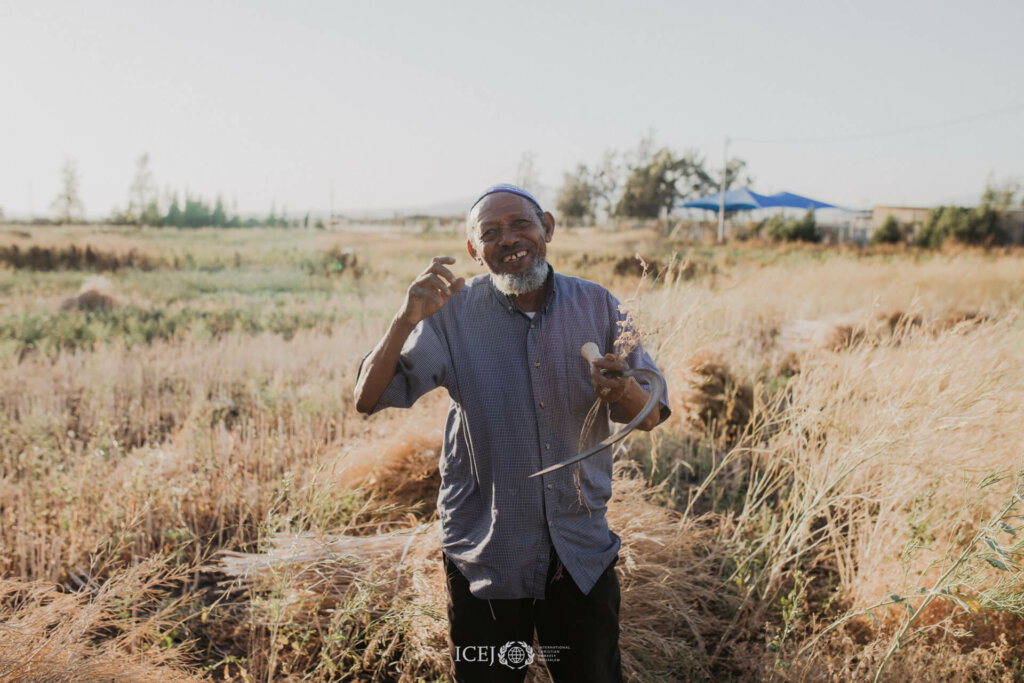
Warmly welcomed upon arrival by the director, Moran, our Embassy staff also felt the stresses of city-life fade into the background over a cup of traditional Ethiopian coffee and Dabo, a delicious Ethiopian bread. Moran explained that the selection of this particular site was intentional. In order to make the new arrivals feel as comfortable as possible after the long-awaited journey back to the land of their ancestors, they chose to welcome them in an environment with a similar feel to rural life in Ethiopia, instead of the bustling urban life of Jerusalem or Tel Aviv. We saw firsthand how natural the setting was for them as we watched elderly Ethiopian men busily harvesting spices from the community garden in their traditional manner.
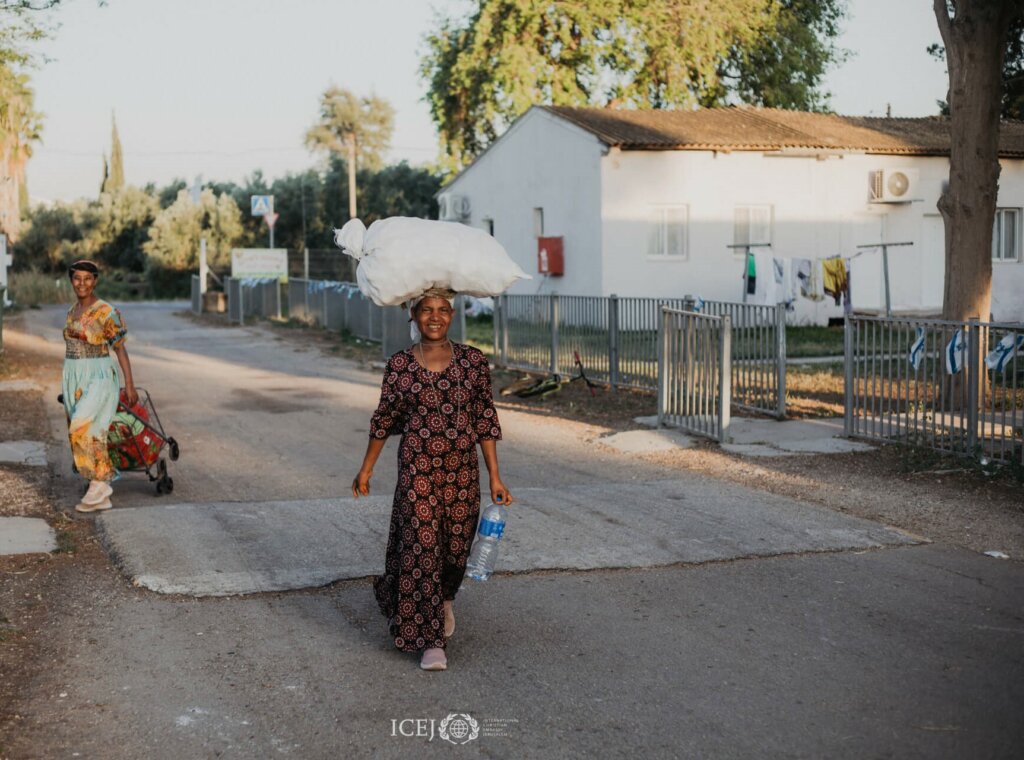
As there are many points of potential setback in the Aliyah process, having a taste and feel of home lessens the shock of landing in a new land with a completely different language and culture. While the flight from Ethiopia takes less than four hours, the gap from rural Ethiopia to a modern Western nation like Israel is like stepping forward in time hundreds of years.
Upon arrival, Ethiopian olim receive housing and assistance in many areas of their lives.
“We welcome the olim, help them integrate and connect them to Israeli society, so that they can realize their dreams and begin a new future”, explained Moran. “These families came with little beyond a few personal items and their children in tow. Here, they receive love, care, and assistance with finances, educational opportunities, and job training.”
Most immigrants live for three years at the Aliyah center, with the first year dedicated to learning Hebrew and Judaism, and the remaining time devoted to working and saving money towards a home of their own. Initially, immigrants find work in factories, stocking shelves in stores, cleaning, and agriculture. In a remarkable display of solidarity and community, older immigrants help the newer ones. And besides saving money for a home, all send money back to family members still waiting back in Ethiopia for their turn to reach Israel. Without this assistance, it was noted, they may not have food to eat.
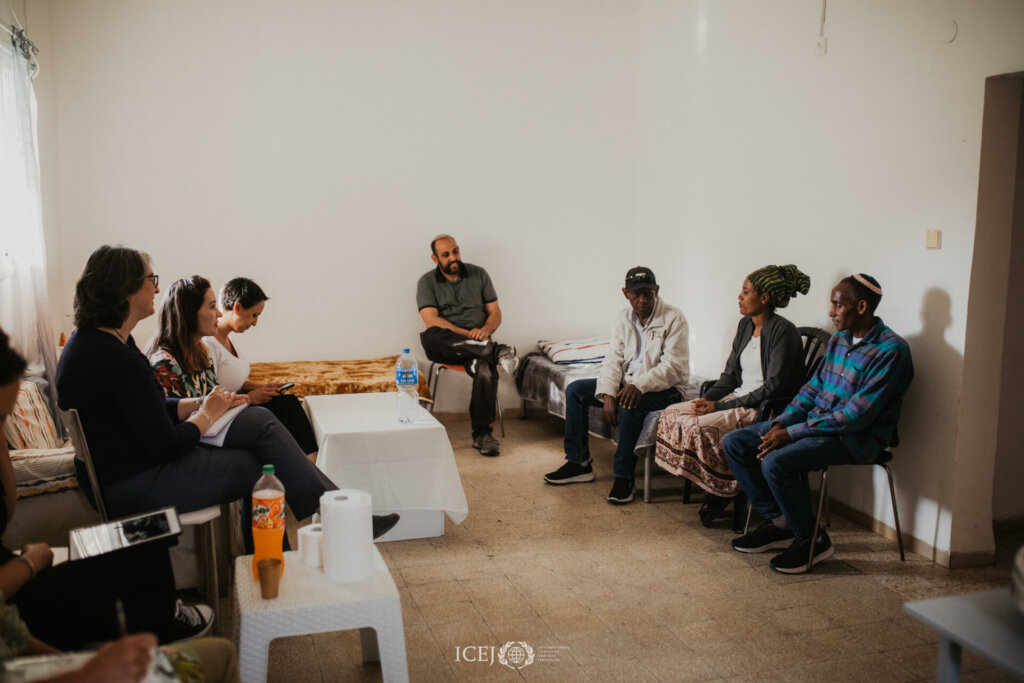
The most memorable part of the visit was being welcomed into the humble home of Kaleb* and Abira,* two Ethiopian newcomers who arrived on the ICEJ-sponsored flight just before Passover in April. Perched on beds and plastic chairs pulled into a circle, Kaleb and Abira shared their story with us through a translator. We were curious to know how long they waited to come and what it felt like when they got the news of their flight.
“I felt that I was born anew when I heard that I had been approved to make aliyah. We were very happy”, exclaimed Kaleb, who yearned for 25 years to step foot on the Land of Israel.
The flight enabled the family to reunite with Kaleb’s three brothers and Abira’s brother and sister, who had arrived a few years ago. Kaleb shared how emotional that meeting was for them and how he wanted to urge other families to not give up or lose hope. Unfortunately, the joy of seeing family here also meant the grief of saying goodbye to parents and other family members left behind who were not yet approved to come. No one knows when or if they might arrive.
In phase two of ‘Operation Rock of Israel’, the Israeli government decided to bring another 3,000 Ethiopian Jews home to Israel, with 2,000 already landed and the remaining 1,000 hopefully set to arrive by late June. Of those arriving now, only 10 percent over age 35 have at least an elementary education. This is consistent with Kaleb’s lack of a formal education and Abira’s eight years of education. When asked about their dreams for the future, Abira expressed her desire to give their two elementary-age children as bright a future as possible. She dreams that both of her children, Amara* (11) and Yonas* (4), will study and learn to a high level. Kaleb and Abira began their own intensive Hebrew studies (ulpan) just a few days after we met them.
When asked what gave them strength as they waited for 25 long years, the couple exclaimed with wide smiles: “We never stopped believing. Dreams do come true. Though, if God hadn’t helped, it would never have happened… It happened in God’s timing.”
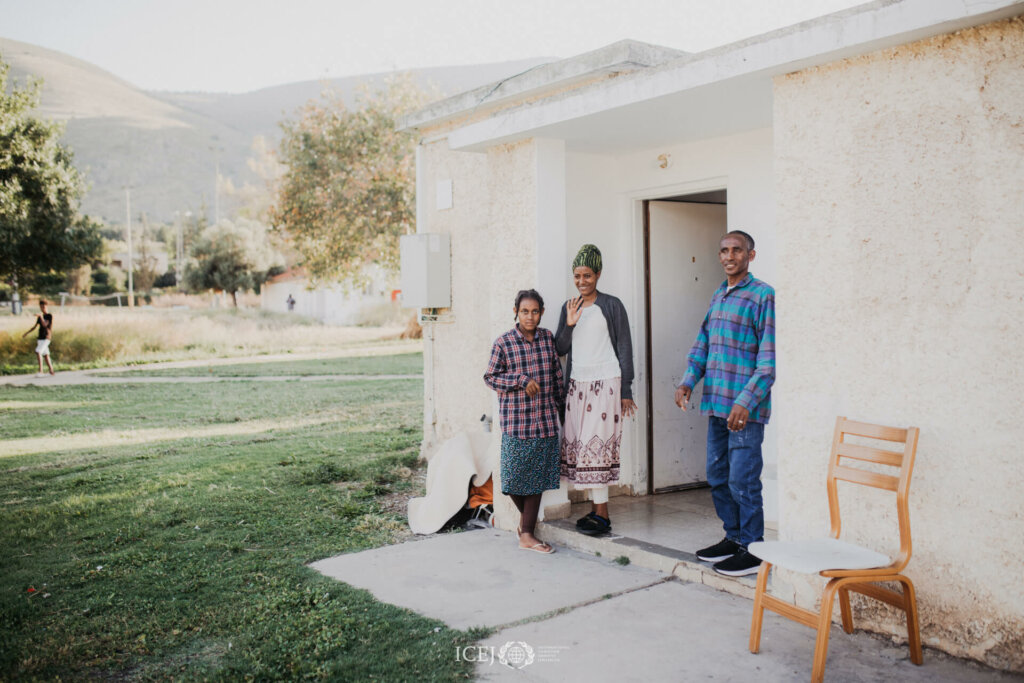
As we parted, the couple thanked the Christian Embassy for the help they received from us and encouraged us to continue helping other Ethiopian families so that they, too, may soon be reunited with families in the land they have been dreaming of their entire lives.
Thank you to all our friends and supporters around the world whose generosity made it possible for Kaleb and Abira, and many others, to come home to Israel. We invite you to partner with us in assisting more Jewish immigrants reach the Promised Land as well. Donate today at: give.icej.org/aliyah
[*Names changed for privacy]
